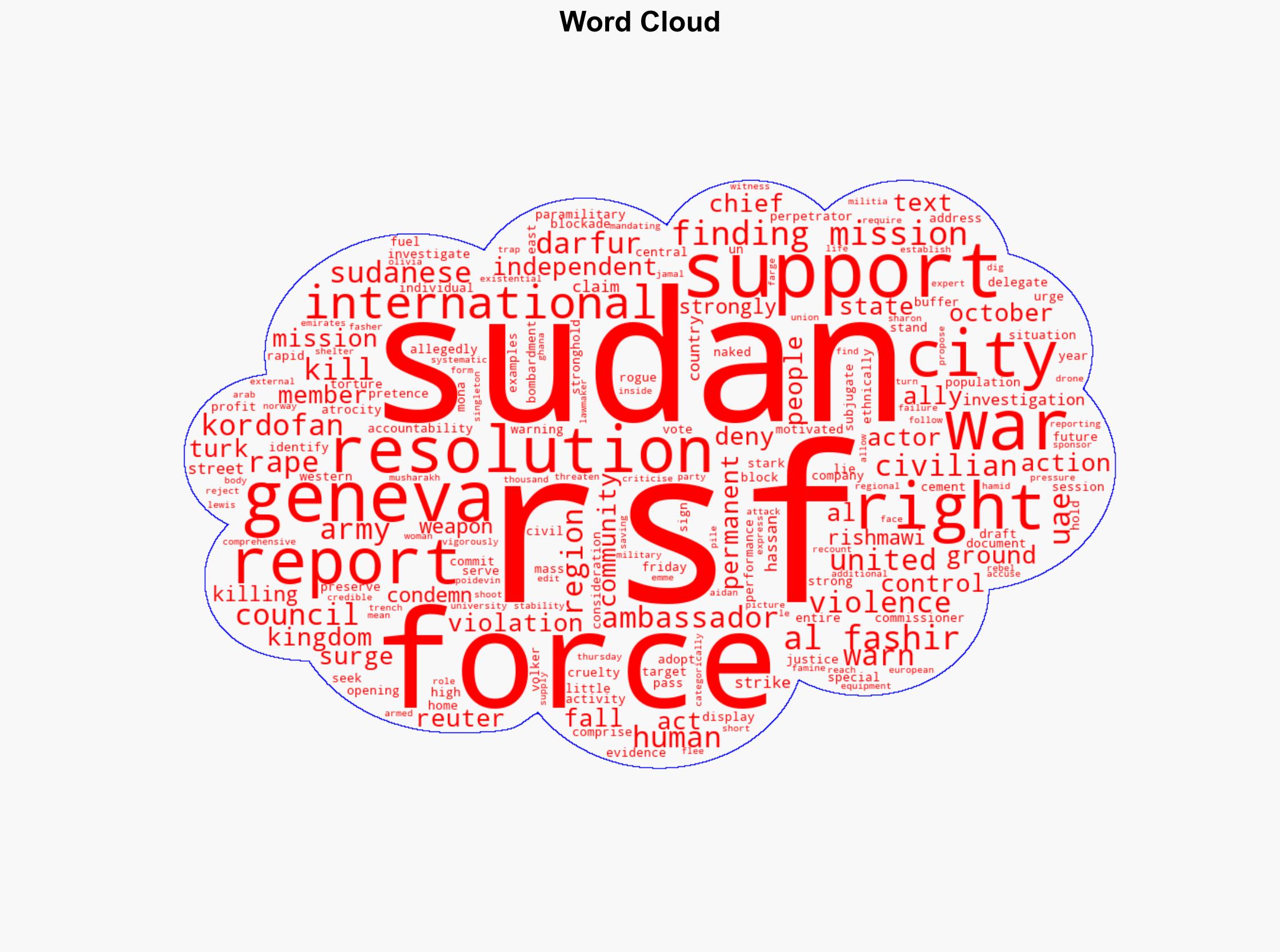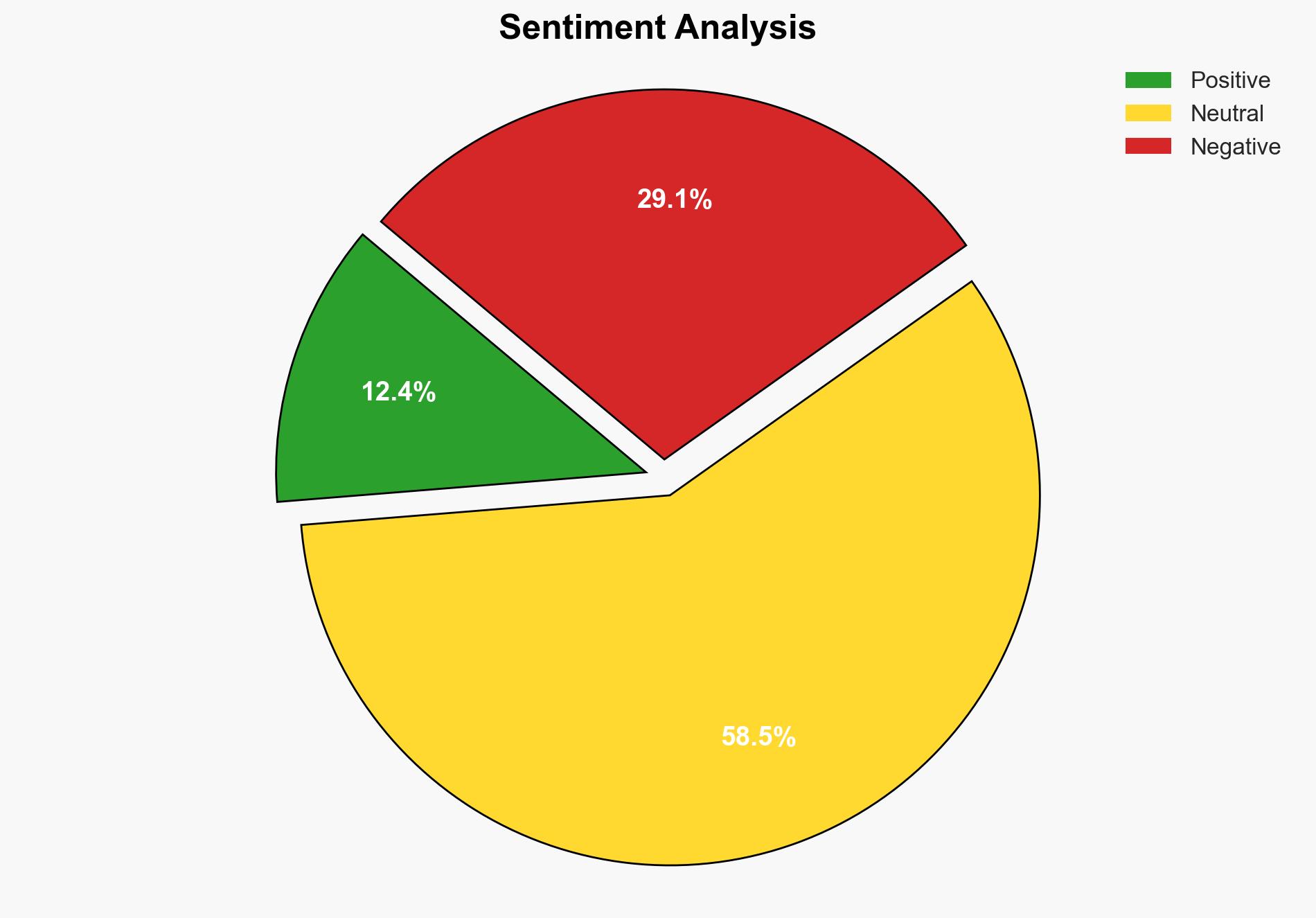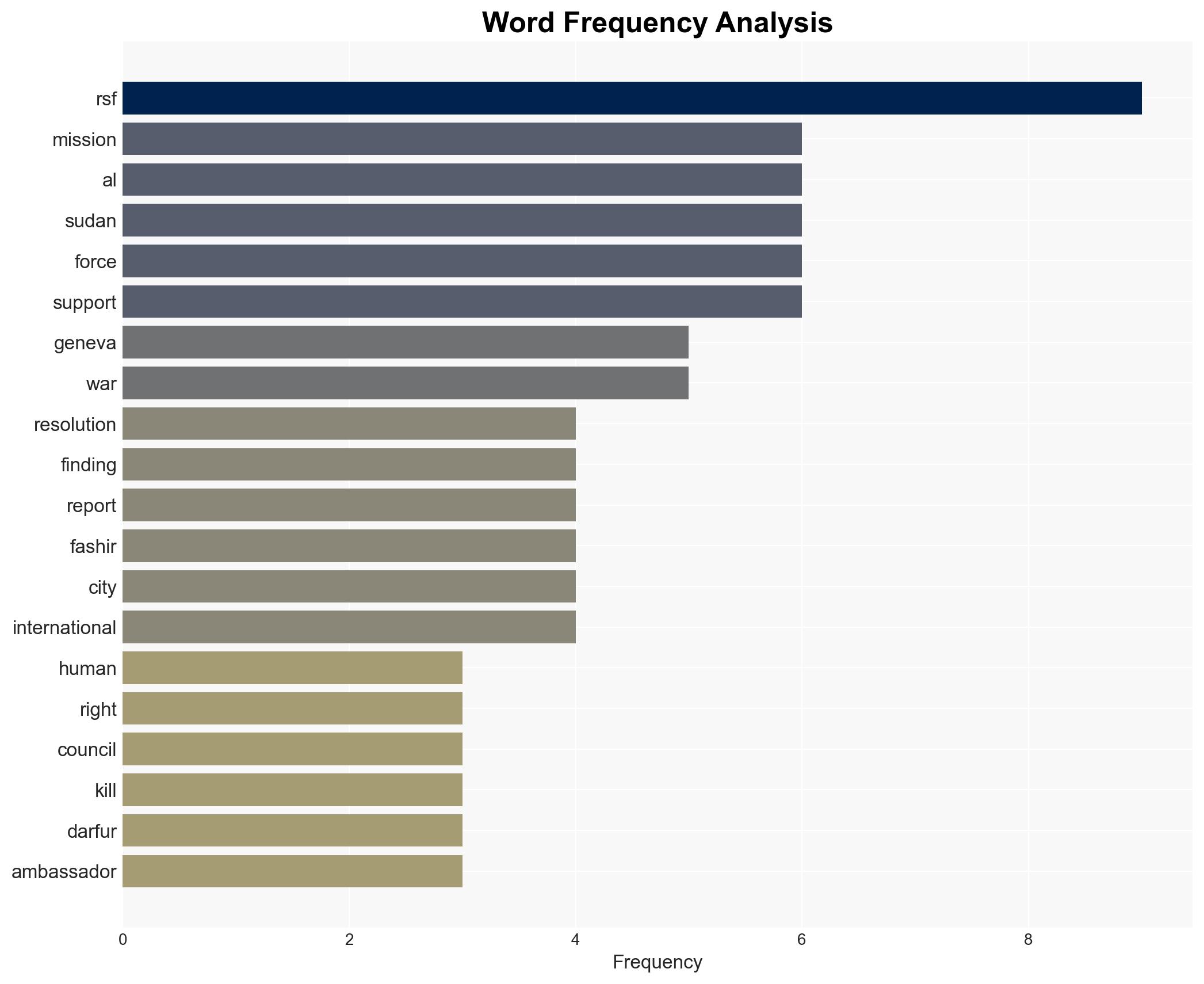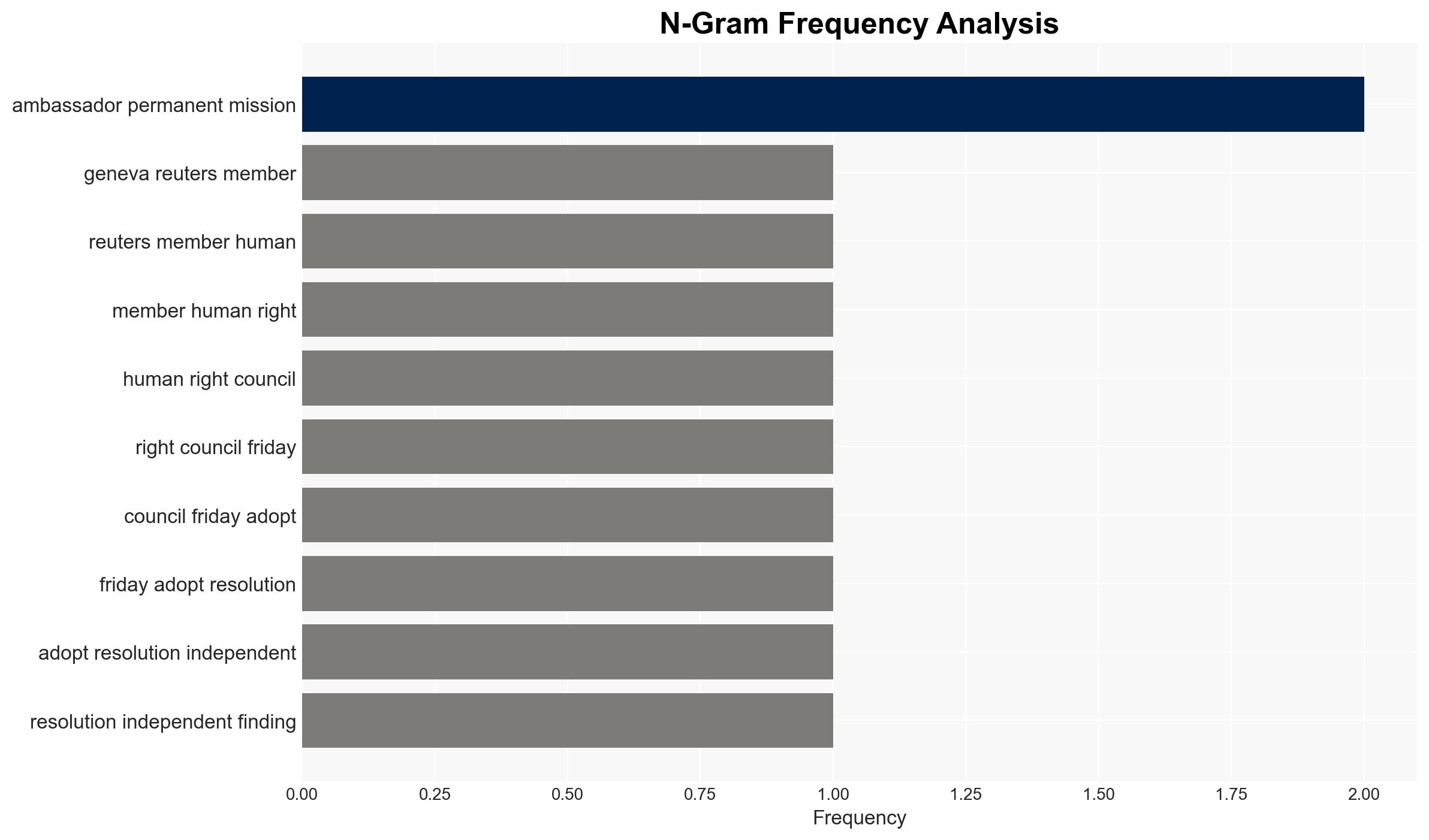UN Human Rights Council begins emergency session on Sudan – The Star Online
Published on: 2025-11-14
AI-powered OSINT brief from verified open sources. Automated NLP signal extraction with human verification. See our Methodology and Why WorldWideWatchers.
Intelligence Report: UN Human Rights Council begins emergency session on Sudan – The Star Online
1. BLUF (Bottom Line Up Front)
The UN Human Rights Council’s emergency session on Sudan underscores the international community’s concern over alleged atrocities by the Rapid Support Forces (RSF) in Darfur. The most supported hypothesis is that the RSF, with potential external support, is committing systematic human rights violations. A strategic recommendation is to increase international pressure on both the RSF and their alleged supporters, while bolstering humanitarian aid channels. Confidence level: Moderate, due to conflicting reports and potential bias in sources.
2. Competing Hypotheses
Hypothesis 1: The RSF, potentially supported by external actors, is systematically committing human rights violations in Darfur to consolidate control.
Hypothesis 2: The RSF’s actions are largely rogue elements within the force, with limited or no external support, and not a coordinated campaign.
The first hypothesis is more likely due to consistent reports of systematic violence and the strategic importance of Darfur for RSF control. However, the denial by the UAE and lack of direct evidence of external support introduces uncertainty.
3. Key Assumptions and Red Flags
Assumptions include the credibility of reports from the UN and other international bodies, and the RSF’s capability to operate independently. Red flags include potential bias in reporting, the RSF’s denial of targeting civilians, and the UAE’s categorical rejection of support claims. Indicators of deception could be the RSF’s public statements and the lack of transparency in their operations.
4. Implications and Strategic Risks
The situation in Sudan poses significant risks of regional instability, with potential spillover into neighboring countries. The continuation of violence could lead to increased refugee flows, economic destabilization, and potential international military interventions. Cyber and informational threats may arise from disinformation campaigns by involved parties.
5. Recommendations and Outlook
- Enhance diplomatic efforts to pressure the RSF and their alleged supporters, focusing on sanctions and arms embargoes.
- Increase humanitarian aid and support for displaced populations in Sudan and neighboring regions.
- Best-case scenario: Successful international intervention leads to a ceasefire and peace talks.
- Worst-case scenario: Escalation of violence leads to a broader regional conflict.
- Most-likely scenario: Continued low-intensity conflict with intermittent international diplomatic efforts.
6. Key Individuals and Entities
Volker Turk (UN High Commissioner for Human Rights), Mona Rishmawi (Independent International Finding Mission on Sudan), Hassan Hamid Hassan (Sudanese Ambassador), Jamal Al Musharakh (UAE Ambassador).
7. Thematic Tags
Structured Analytic Techniques Applied
- Cognitive Bias Stress Test: Expose and correct potential biases in assessments through red-teaming and structured challenge.
- Bayesian Scenario Modeling: Use probabilistic forecasting for conflict trajectories or escalation likelihood.
- Network Influence Mapping: Map relationships between state and non-state actors for impact estimation.
Explore more:
National Security Threats Briefs ·
Daily Summary ·
Support us
·





